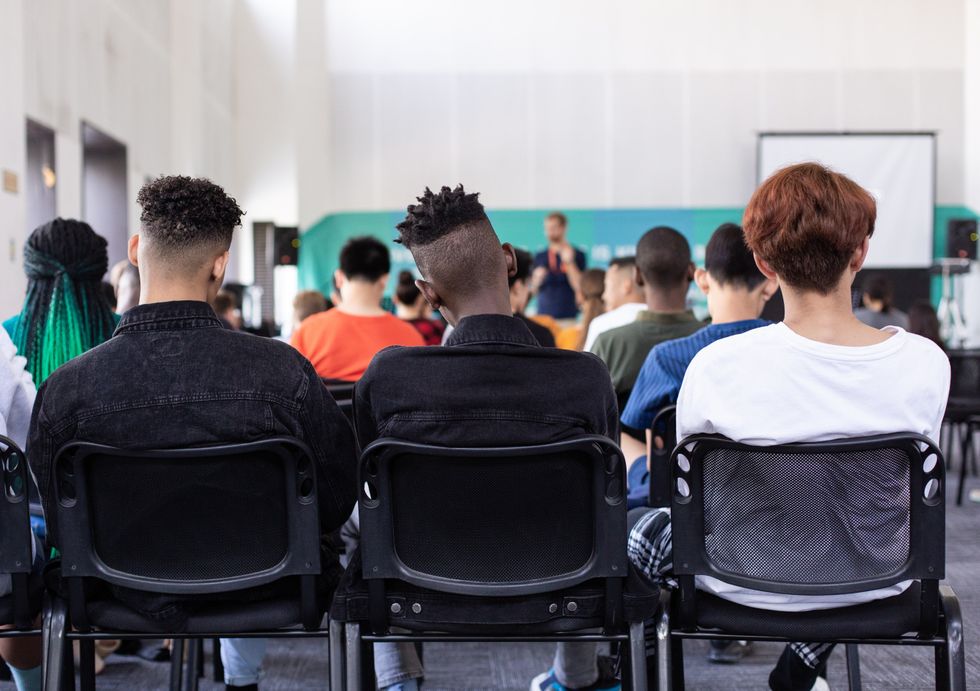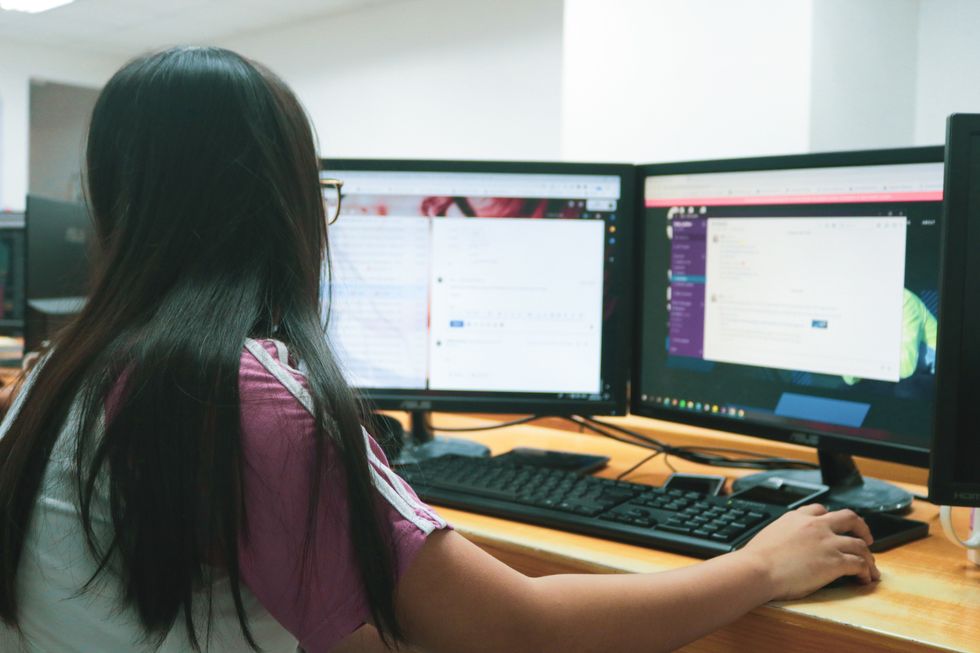Are you having a rough day? Feeling unproductive, or even unsuccessful? Good news: I've compiled a list of small, manageable, bite-size things to change about your habits to make you a better student. Using these will make you a more efficient student who works smarter and uses their resources. You'll be surprised at the big results from these small changes.
1. Utilize nonverbal communication.

When the professor asks a question, nod your head yes or shake your head no. Every time. Your nonverbal communication tells him or 1) if you are engaged and 2) if you understand the content. When you don't understand something, go ahead-- scrunch up your eyebrows and look like you totally don't get it. Your professor WILL pick up on it and probably explain again. You can get a lot of your needs met without even speaking.
2. Snag a good seat.

On the first day of classes of any new semester, arrive at least 15 minutes early to get a good seat. Arrive and scan the room for the following: a nearby outlet, good lighting, easy door access, and view of the prof.
3. Address the professor correctly.

If you don't know what to call your professor, look at his/her/their email signature. If it's just a first name, odds are the professor is comfortable being addressed as such. If it's Dr. _______, you absolutely should use the formal title. You'll be able to avoid a ton of sticky situations this way. You can also Google your professor, and often you can find a LinkedIn or university biography that will provide those sweet, sweet letters of Ph.D. if he/she/they are a doctor.
4. Take a very short break.

If you're having trouble focusing during class, or if you're feeling overwhelmed and stressed, take one (1) minute to breathe. Look at an analog clock, think about nothing, and simply watch the second hand go around. Just once. By the time 60 seconds have passed, you'll have given your brain a moment to recuperate and reset.
5. Ask smart questions.

If you are confused about the relevance of what you're learning, or if you just want brownie points, ask the following: "What are the implications of this concept in a [business/clinical/teaching/professional/etc.] setting?" It will likely provide some clarity on whether what you are learning is important for your career or if you can forget about it after you take the test. Alternatively, if you totally weren't paying attention for the past three minutes of lecture, ask, "could you please clarify _______ again?" It sounds like you're asking for a better explanation instead of just saying, "I'm sorry, I didn't catch that."
6. Stay organized.

Keep a running log of your extracurriculars, jobs, and leadership positions. It's kind of like an extended resume. When you are filling out grad school or scholarship applications, it's so much easier to refer to this list instead of racking your brain for what you did first semester of freshman year. It can also be helpful to have a "stump speech" of sorts on hand for scholarship applications. Once you fill out your first "Why do you deserve this scholarship?" essay, SAVE IT so you can tweak and reuse it for the future.
7. Own two of everything.

Have a duplicate of every single item you need or use in a day in your backpack. That way, you'll never forget anything at your house. This includes--but is not limited to--headphones, toothbrush, cell/laptop charger, gloves, house key, deodorant, sunglasses, whatever. You'll thank me.
8. Become an email superhero.

This skill looks different for everyone: for me, I close every email with "Best," followed by my email signature. I pin anything that needs to get done and copy everything down onto a paper calendar. Whatever it takes, stay organized with your university email. Pro tip: many universities automatically put all students, faculty, and staff into your contacts. If you don't know the first or last name of someone, search that (monster) list and you can find it in a snap.
9. Take advantage of interlibrary loans.

Need a textbook? Some pleasure reading? An obscure research article? The campus library will save your butt, every time. Many state library systems provide a service where they will deliver (for free) any book or material that you need, and you can check it out just like a regular library book. Sometimes, you can even renew them for several weeks. I have gone full semesters having borrowed a free textbook from miles and miles away.
10. Turn on night light filters all day long.

Most laptops and cell phones provide a night mode filter, which removes some of the blue frequencies and makes everything look a little warmer and yellower. It's way more pleasant to look at, and is much easier on the eyes. Turn it on and keep it on, and you won't feel as much eye strain.
Now get to the grind!
















